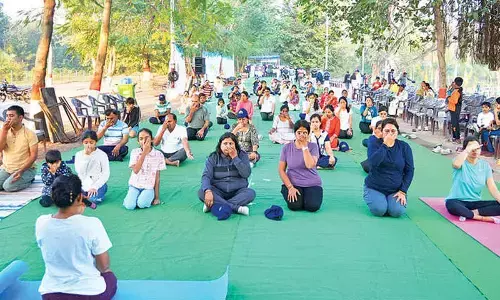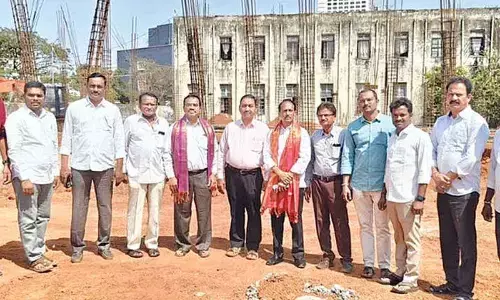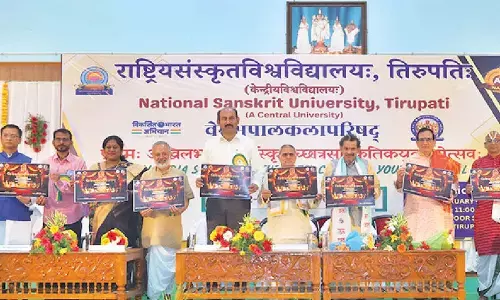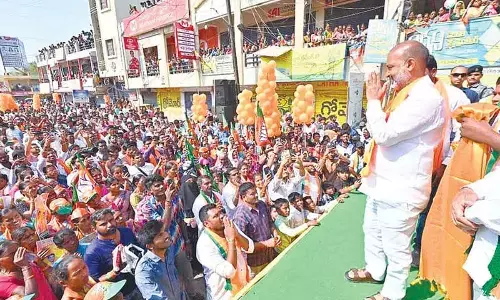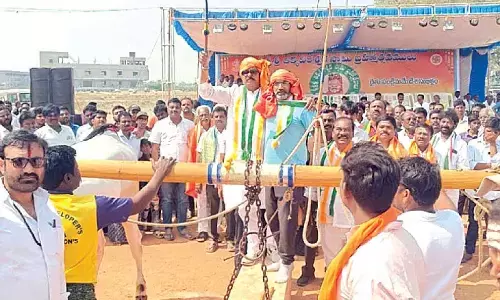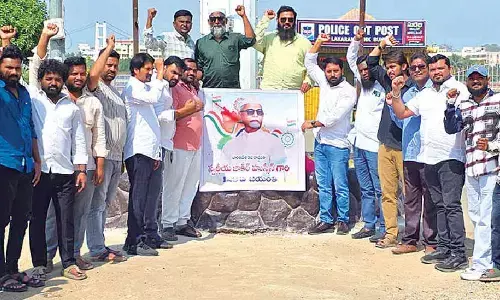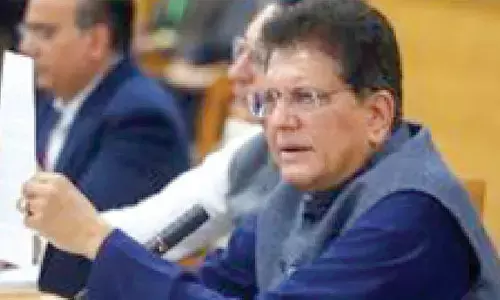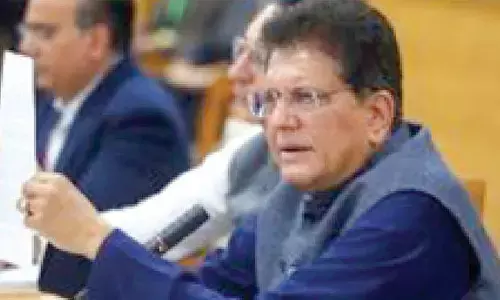Tribal self-rule remains a mirage

Tribal Self-Rule Remains A Mirage. Seventeen years ago on December 24, 1996 Parliament enacted Panchayats Extension to Scheduled Areas (PESA) Act which was to empower the tribals through self-governance.
 Seventeen years ago on December 24, 1996 Parliament enacted Panchayats Extension to Scheduled Areas (PESA) Act which was to empower the tribals through self-governance. The national legislation was brought following the recommendations of the Bhuria Committee Report in 1995. PESA is an extension to the 73rd Amendment to the Constitution and therefore an extension to the Constitution.
Seventeen years ago on December 24, 1996 Parliament enacted Panchayats Extension to Scheduled Areas (PESA) Act which was to empower the tribals through self-governance. The national legislation was brought following the recommendations of the Bhuria Committee Report in 1995. PESA is an extension to the 73rd Amendment to the Constitution and therefore an extension to the Constitution. The Act’s radical objectives are: to provide tribal self-rule; to ensure local governance with participatory democracy and to make the gram sabha the nucleus of all activities; to safeguard and preserve the traditions and customs of tribal communities; to empower panchayats at the appropriate levels with specific powers conducive to tribal requirements; and finally, to prevent panchayats at the higher level from assuming the powers and authority of panchayats at the lower level or of the gram sabha as per central PESA. All States with Scheduled Areas were to enact a suitable legislation within a year that are consistent and not in contradiction to PESA, the central Act. Andhra Pradesh Government brought the A P Panchayat Raj (Amendment) Act (AP PESA) in 1998, which is neither in conformity with Central Act nor did the State Government bother to translate it into reality by its actual implementation.
Why is the State legislation at odds with the national legislation? Obviously this stems from to the fear among the bureaucrats and rulers of the State that if more autonomy is given to local self governments this would reduce their status and privileges, and affect their hegemonic control over these bodies.
This is evidenced by the fact that although the Government of Andhra Pradesh had enacted State law long back in 1998, they did not constitute Gram Sabhas in the Scheduled Areas for its operation. This failure enabled the State departments to continue to illegally enjoy their powers and functions, undermining the local self-government institutions and even the
Constitution.
Land Acquisitions
The Central PESA stipulates that Gram Sabhas or Panchayats at the appropriate level shall be consulted before making the acquisition of land in the Scheduled Areas for development projects. But the AP PESA provides consultation is required only at the level of Mandal Praja Parishad. However even this principle of law is not followed in the case of the Polavaram project which has been a test case for the constitutional law of self-governance in the scheduled areas of East, West Godavari and Khammam districts.
Approval of socio-economic programmes
PESA stipulates that Gram Sabha is the approval authority for the socio-economic plans, programmes and projects. The State Government diabolically created parallel structures to the Panchayat Raj bodies to delimit the role of local bodies with an intention to safeguard its imperialist frame.
The Government created parallel structures such as the Village Tribal Development Authorities (VTDAs) to counter the Gram Sabhas under Panchayat Raj Act. Similarly many committees like Water Users Association, Educational Committees, Vana Samrakshana Samithis under World Bank-assisted Forestry Projects and Village Organisations (VO) under Ministry of Rural Development etc are in operation which negates and violates the powers of Panchayat Raj Bodies in order to illegally perpetuate the bureaucratic control of the Government. In fact all the user groups or other form of committees should operate within the framework of PESA Act.
This has not only weakened the traditional cohesiveness of villages but has also fragmented the villages introducing conflicts and often violence. The village order is in disarray and traditional consensus decision-making amongst the tribals is being intentionally destroyed making peace and development a casualty.
Reservations
Reservations of seats in PESA are in proportion to the population of communities for whom reservation is sought. AP PESA while providing for reservation at gram panchayats and mandal parishads in the scheduled areas, the district-level body has been left out. Similarly, the post of chairperson of panchayats at all levels is to be reserved for the Scheduled Tribes, but in the State law the seats have been reserved for the sarpanches of the Gram Panchayats and the president of the Mandal Parishads only. The de-reserving of the posts of ward members of Gram Panchayat and Territorial Constituency members at both Mandal and District level for the Scheduled Tribes in the Scheduled Areas poses a serious threat to the envisaged objective Tribal self-rule. The enforcement of the general laws in the Scheduled Areas has virtually eclipsed the rights of adivasis.
Minor Forest Produce
Forest and forest-based resources is yet another subject critical to the lives of the tribals. PESA recognises this and thus responds most radically by granting ownership of minor forest produce to the Gram Sabha along with Panchayat at appropriate level. One aspect of the forest bureaucracy that has had a major effect on tribals’ forest livelihoods has been the monopolisation of non-timber forest products (NTFP) marketing by the Girijan Co-operative Corporation (GCC) which is a sole agent under the A P Scheduled Areas Minor Forest Produce (Regulation of Trade) Regulation, 1979. This monopoly continues despite the provisions of PESA legislation in force.
Tribal Sub-Plan funds
PESA law endows ‘Panchayats at the appropriate level and the Gram Sabha’ with this power to control over local plans and resources including Tribal Sub-Plan. But the State Government recently brought the SC & ST Sub-Plan Act 2013 in violation of PESA by creating District and State level bodies to control and monitoring TSP funds. Several committees constituted by the Government of India laid specific emphasis that People-centric governance and people-centric planning and implementation in the Scheduled Areas is essential for containing Left Wing Extremism and can be brought about through the implementation of PESA in letter and spirit.
Next Story








